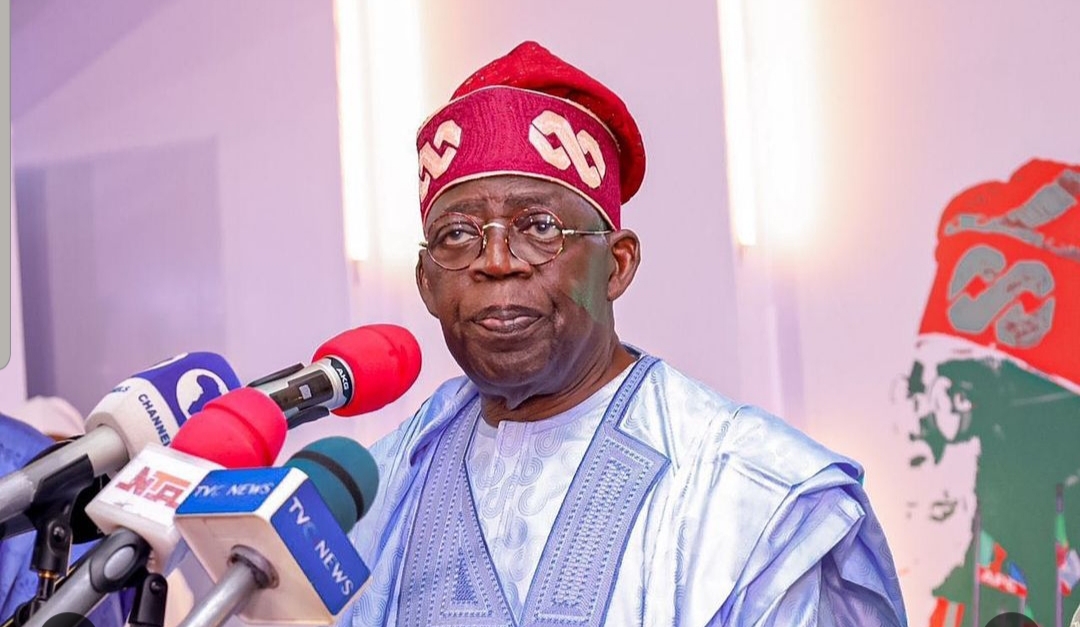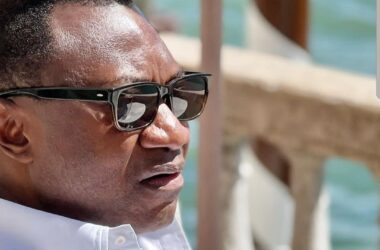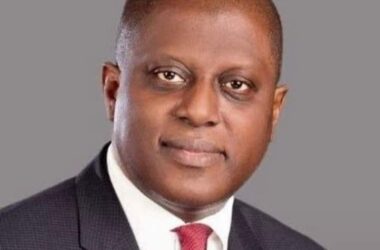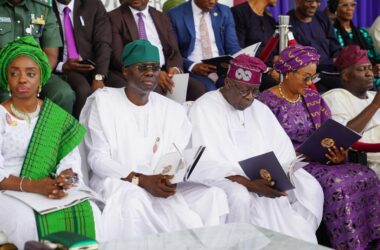None of President Bola Tinubu’s appointees can claim that he or she did not receive fair warning in advance. Or perhaps they thought that, given the record of successive Nigerian leaders when it comes to acting on their pledges (especially as regards the fight against corruption and other forms of official misbehaviour) the current President’s pronouncements were just another case of hot air, soon to fizzle out with the breeze of the so-called ‘Nigerian factor.’ With the recent suspensions from office of Dr. Betta Edu (Minister for Humanitarian Affairs and Poverty Alleviation) and the spate of suspensions and removals from office of top executives across the various sectors of the nation’s economy, any one who had thought along those lines has since been seriously disabused. Recall also that a few days before Edu was suspended, the President had directed the suspension of the National Coordinator of the National Social Investment Programme Agency (NSIPA), Hajiya Halima Shehu. Her suspension, like Edu’s, was in response to allegations of suspicious movements of cash from the NSIPA account into private purses.
In the last one week or so, the President’s seriousness of purpose has been on stark display with the gale of suspensions and removals from office that rocked the nation’s aviation and aerospace ecosystem. Mr. Kabir Yusuf Mohammed was suspended as MD of the Federal Airports Authority of Nigeria (FAAN); Mr. Tayib Adetunji Odunowo was suspended as MD of the Nigerian Airspace Management Agency (NAMA); DG of the Nigerian Safety Investigation Bureau (NSIB), Engr. Akinola Olateru was similarly relieved of his post, as was the DG of the Nigerian Meteorological Agency (NIMET), Prof. Mansur Bako Matazu. So also was the Rector of the Nigerian College of Aviation Technology (NCAT), Capt. Alkali Mahmud Modibbo. Also removed from his post was the DG of the Nigeria Civil Aviation Authority (NCAA), Capt. Musa Shuaibu Nuhu.
Elsewhere, the President ordered the suspension of no less than the Chairman of the Economic and Financial Crimes Commission (EFCC), Mr. Abdulrasheed Bawa. Even the Deputy Governor of the Central Bank of Nigeria in charge of Financial System Stability, Aisha Ahmad, was arrested and detained by the Department of State Services (DSS) over the allegedly fraudulent acquisition of shares in a number of banks, and the suspicious manner in which these acquisitions were made.
Also suspended or scrapped entirely are some programmes, schemes and initiatives from the previous administration which did not meet the test of transparency.
As President-elect, Tinubu had warned of what would be a hardline stance on corruption by his administration – in the understanding that corruption, in all its forms, is more than just a threat to economic growth, but a fatal blockage of all driving forces of development. And upon assumption of office, he presented to his compatriots an 8-point agenda for the economic re-engineering and radical overhaul of the business of government. Broad-based and ambitious, it outlined a policy strategy for moving the Nigerian economy forward and for delivering food security, ending poverty, fostering economic growth and job creation, enhancing access to capital and credit, encouraging inclusivity in all its dimensions, particularly as regards young people and women, improving security, improving the playing field on which companies do business, and fighting corruption.
On the last item – fighting corruption – the President responded to well-meaning advice from relevant stakeholders by giving the EFCC the latitude to do its job in an effective, timely and wholistic manner. In response, the anti-graft agency is poised to not only step up its intelligence gathering and deployment abilities, but also to strengthen its bridge-building and synergy-building capabilities, as well as its ability to forge reliable linkages with critical stakeholders across the globe. This approach, many stakeholders believe, will be as good for the EFCC’s image as it will be good for the President’s economic agenda, because, truth be told, none of the other other items on his agenda – job creation, poverty alleviation, food security, access to capital, inclusive youth and women development, security, etc – though unmistakably compelling and crucial, can be achieved without slaying the hydra-headed monster of corruption. Late last year, the Attorney-General of the Federation and Minister of Justice, Prince Kunle Fagbemi, SAN, announced the administration’s intention to put in place a National Anti-Corruption Strategy by the end of the first quarter of 2024 to combat the scourge, which would be focused on 5 key pillars, namely, prevention of corruption; public engagement; campaign for ethical re-orientation; enforcement and sanctions; and the recovery and management of the proceeds of crime.
In that regard, President Tinubu reiterated his determination to ensure that the right things are done for the Nigerian people in his 2024 New Year’s broadcast to Nigerians. “I took an oath to serve this country and give my best at all times,” he said. “Like I said in the past, no excuse for poor performance from any of my appointees will be good enough … Within the first quarter of this new year, Ministers and Heads of Agencies with a future in this administration that I lead will continue to show themselves … Everything I have done in office, every decision I have taken and every trip I have undertaken outside the shores of our land … have been done in the best interests of our country.”
A local proverb says that Mother Hen sometimes steps on its chicks, not because she doesn’t love them. It is, rather, a gesture aimed at passing life lessons and correcting bad behaviour. Some decisions taken by the President in the past few weeks – and since May last year – have shown that he is ready, not just to step on erring members of his brood to indicate zero-tolerance for bad behaviour, but also to take the difficult but necessary decisions to ensure the best long-term outcomes for the Nigerian people. The President has also made clear his intention to restore the word ‘service’ back to ‘public service’ – meaning that public-office holders must see their time in office as a patriotic call to duty, and bend over backwards, if necessary, to give their contributions to the nation. Turning such opportunities into avenues to pilfer from the common purse, or paying lip service to the task assigned to them, are inexcusable. So, apart from outright wrongdoing, another thing President Tinubu has marked out as intolerable is laxity on the part of his appointees.
In light of the above, there are many Nigerians today – many of them among his detractors who voted for tickets other than his during the last presidential election – who, however grudgingly, admit that, so far, Asiwaju Bola Tinubu has kept faith with the pledges he made during the campaigns and in his inaugural address as No 1 citizen. Though it must be said that most, if not all, of his policies and actions have had a debilitating impact on the fortunes of the average Nigerian household, the overall picture is that of a President who has kept his administration on track to actualize the aforementioned 8-Point Agenda.
The question, though, still remains: What are Nigerians to make of the indications from this administration, and what more can we rightfully expect?
The first major pronouncement by the President on assumption of office was a most unpalatable one indeed, as he announced an end to the payment of subsidies on petrol. As expected, the announcement was met with resistance from labour unions and citizens who were unaccustomed to paying so much for fuel, upon which the Presidency announced plans to review the minimum wage so that it is commensurate with the cost of living, while also rolling out a nationwide palliative distribution plan.
The President also took on the issue of the corrupt management of Nigeria’s forex regime and moved to unify the exchange rate. While it is ‘not yet uhuru‘ as they say, the hope of all stakeholders is that the Central Bank of Nigeria (under its new and seemingly more responsible leadership) will be able to deliver on a sane forex regime. Happily, as a follow-up to the forex reforms (and because it has made more funds available for some meaningful work to be done especially at the subnational level), the Tinubu administration introduced an infrastructure fund for the purpose of bringing much-needed development to the states.
Recall that one of the President’s key accomplishments when he was Governor in Lagos State was his government’s ability to look inward and reform the state’s tax and revenue collection system. With the latter inauguration of a Presidential Tax Reform Committee led by Taiwo Oyedele, the effort is being made to not only increase the government’s revenues but also to improve the country’s overall business environment. (About time, too – as far as the business environment is concerned – because anyone who has done business in Nigeria can attest to the suffocating effect – especially on young entrepreneurs and startups – of multiple taxation and a confusing regulatory environment). It is right for Nigerians to expect that the Tinubu-led administration would put an end to the scourge of multiple taxation, widen the tax net and make the tax collection system much more efficient and user-friendly.
Nigeria has one of the largest populations of people under the age of 35 years in the world – a statistic that is not lost on the President and his team, who know that policies implemented in virtually every sector of the economy will impact them more significantly than others. For that reason, there have been developments specifically focused on young people by the Tinubu administration. One of the potentially most significant of these policies was the enactment of the Students’ Loan Bill. Education remains the greatest tool to ensure equal opportunity for all. This is why it is key that in light of current realities such as the rising cost of education generally, – and higher education in particular – students from low-income backgrounds are not denied an opportunity to access that level of education.
Since assuming office, Tinubu has shown a firm commitment to ensuring youth and gender inclusion in his administration. The current President holds the record of nominating the highest number of young and/or female ministers and heads of key agencies, as well as personal aides, of ANY presidential administration. The choice of the journalist Ajuri Ngelale, for example, as presidential spokesperson and special adviser to the President on media and publicity, is a case in point. He has shown competence and sheer brilliance, and his approach towards public engagement reflects the President’s willingness to make a clear departure from the more combative stance which previous presidential spokespersons tended to prefer. And while his age is not what earned him the role, it is good that a young professional like Ajuri is the face of the Tinubu administration.
Another clear departure from past precedence was the President’s naming of former EFCC boss Mallam Nuhu Ribadu as the National Security Adviser. The appointment of the former police chief is a radical turn from the military establishment which has long dominated Nigeria’s state security apparatus. It is also an indication that the direction of state security under President Tinubu would henceforth be under civilian control – in line with the President’s democratic impulses.
Since his assumption of office, the Nigerian President has embarked on a number of foreign trips – notably to multilateral events such as the G20 Summit in New Delhi, India, the 78th UN General Assembly in New York, USA; the Saudi-Africa Summit in Riyadh, the 2023 Climate Conference in Dubai, UAE, etc, as well as state visits to countries critical to Nigeria’s developmental aspirations. On each stop, the President told the world – especially the international business and investment community – that Nigeria was open for business; he took pains to highlight the manner in which his government was removing the systemic and regulatory bottlenecks that have long militated against the full flowering of the country’s business potential, driven investors out of the country in droves, and kept Nigeria perpetually on the lower reaches of the Global Ease of Doing Business Index. At the UN, he called on the global community to adopt a new, common-sense-based attitude and approach to the issues that affect the African continent, saying it was in everybody’s enlightened self-interest. The response to all these engagements on the part of Nigeria’s international partners has so far been highly encouraging.
As already mentioned, it is not yet uhuru as far as the manifestation of the pledges made by the Tinubu administration is concerned. The jury is still out on when, and what manner, his policies will begin to bear fruit.
But there’s no denying that this President has his priorities in order. And that gives many Nigerians cause for confidence – and a reason to stay the course in the face of our current socio-economic difficulties.






